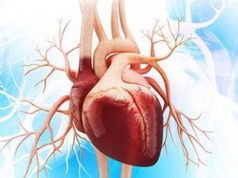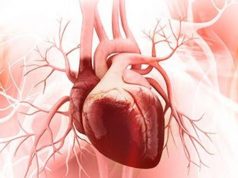Calcified coronary plaque prevalence lower among PLWH without known cardiovascular disease versus healthy volunteers without HIV
FRIDAY, April 23, 2021 (HealthDay News) — People living with HIV (PLWH) without known cardiovascular disease have an increased prevalence and volume of noncalcified coronary plaque, as measured by coronary computed tomography (CT) angiography, compared with healthy volunteers without HIV, according to a study published online April 20 in Radiology.
Irina Boldéanu, from the University of Montreal Hospital, and colleagues conducted a prospective study to measure CT characteristics of coronary plaque in PLWH without known cardiovascular disease (181 participants) and healthy volunteers without HIV (84 participants). The prevalence, frequency, and volume of calcified, mixed, and noncalcified plaque were measured using coronary CT angiography, which was performed in 155 PLWH and 78 healthy volunteers.
The researchers observed no difference in the median 10-year Framingham risk score for PLWH and healthy volunteers or in the coronary artery calcium score or overall plaque prevalence after adjustment for cardiovascular risk. PLWH had a higher noncalcified plaque prevalence (prevalence ratio, 2.5) and volume (odds ratio, 2.8). In PLWH, calcified plaque prevalence was reduced (odds ratio, 0.6). A higher volume of overall and mixed plaque was seen in association with treatment with protease inhibitors (odds ratios, 1.8 and 1.6, respectively).
“Our study shows that noncalcified coronary plaque is increased in people living with HIV,” a coauthor said in a statement. “And noncalcified plaque has previously been shown to be associated with worse cardiovascular outcomes than calcified or mixed plaques.”
Several authors disclosed financial ties to the biopharmaceutical and medical technology industry.
Editorial (subscription or payment may be required)
Copyright © 2021 HealthDay. All rights reserved.








